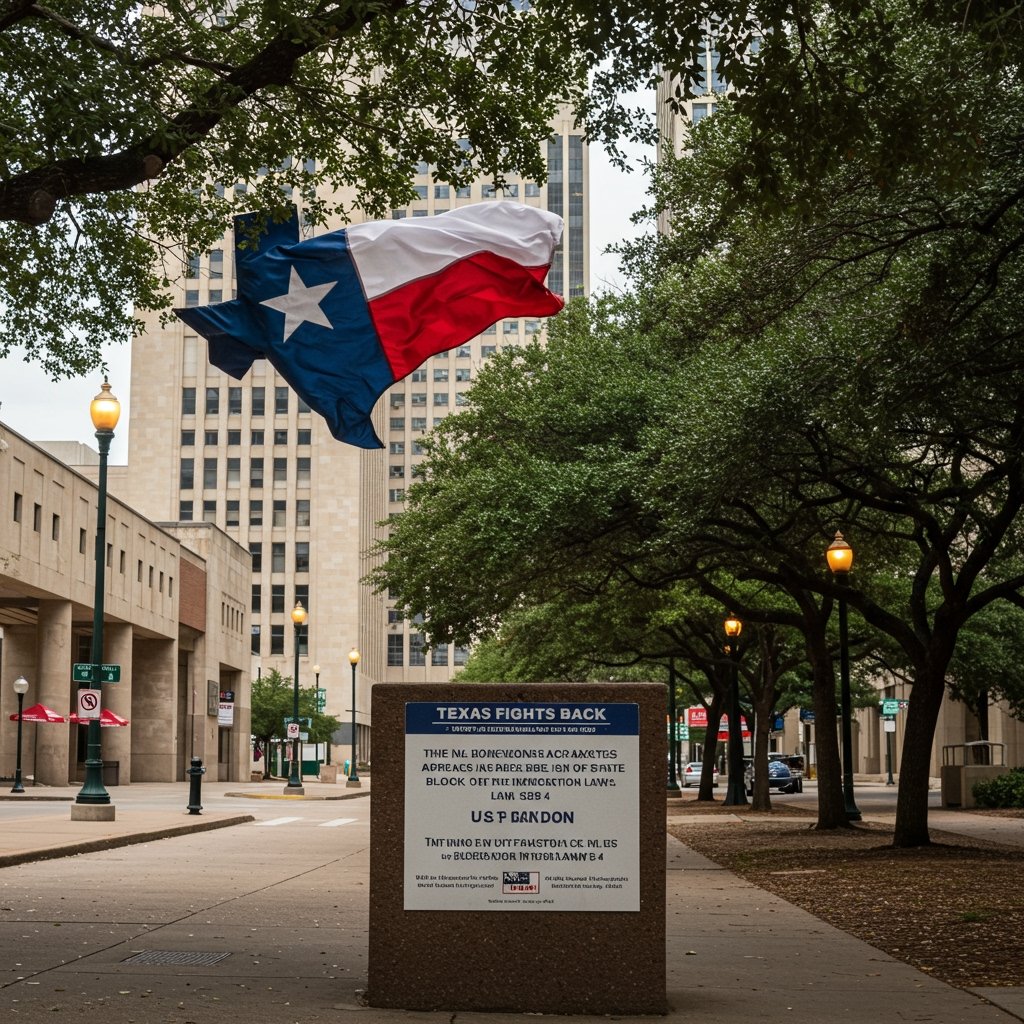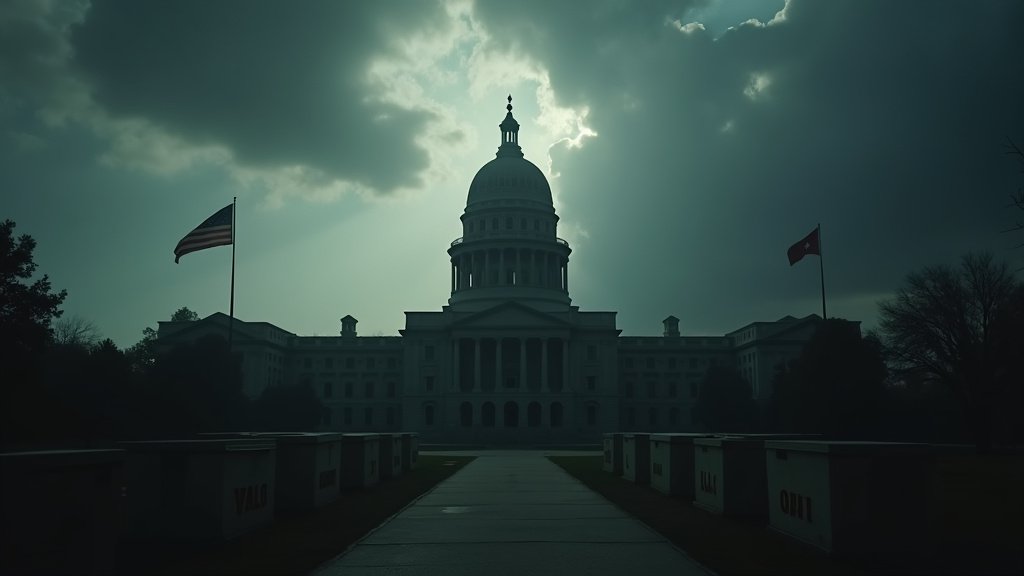Texas Challenges Federal Block on SB 4, State Immigration Authority at Stake
Austin, Texas – Texas Attorney General Ken Paxton announced on Monday, March 4, 2024, that the state is initiating an appeal against a federal judge’s decision that has temporarily blocked key provisions of Senate Bill 4 (SB 4), Texas’s controversial state-level immigration enforcement law. The appeal will be filed with the U.S. Fifth Circuit Court of Appeals located in New Orleans. This move signals Texas’s continued commitment to enforcing its own border security measures despite facing significant legal challenges.
SB 4, formally known as HB 4 in the legislative session before passage and codification, was enacted in December 2024 following a contentious legislative process. The law represents a significant escalation in Texas’s efforts to address illegal immigration at the state level. At its core, the legislation aimed to empower state law enforcement officers to arrest individuals suspected of crossing the border illegally between ports of entry. Furthermore, it would have granted state judges the authority to issue orders for the deportation of individuals found to be in the country unlawfully.
The enactment of SB 4 immediately drew sharp criticism from civil rights organizations, immigrant advocacy groups, and the U.S. Department of Justice. Opponents argued vehemently that the law oversteps federal immigration authority, which is historically and constitutionally vested in the federal government. They contended that creating a parallel state immigration system is unconstitutional, impractical, and fraught with potential for civil rights violations and inconsistent enforcement across states.
The legal challenge against SB 4 culminated in a ruling by U.S. District Judge David Ezra in Austin on February 29, 2024. Judge Ezra issued a preliminary injunction that blocked the core components of the law from taking effect while the legal battle proceeds. In his detailed 114-page opinion, Judge Ezra stated that SB 4 “conflicts with federal law and is unconstitutional.” He noted that the Supremacy Clause of the U.S. Constitution establishes federal law as supreme, and that Congress has created a comprehensive immigration framework that state laws cannot supplant.
Judge Ezra’s ruling specifically halted the provisions allowing state law enforcement to arrest individuals for improper entry into Texas from a foreign nation and the provisions authorizing state judges to order removals. This temporary block prevented SB 4 from being implemented as planned, which was scheduled to occur on March 5, 2024.
Following the federal court’s decision, Texas Attorney General Ken Paxton wasted no time in announcing the state’s intention to appeal. Paxton characterized the ruling as incorrect and a setback for Texas’s efforts to secure its border. His office stated that they would immediately pursue the appeal at the Fifth Circuit, a court that has previously ruled favorably towards Texas on some immigration-related matters, though the outcome of this specific case remains uncertain.
Governor Greg Abbott also weighed in on the district court’s ruling, reiterating his steadfast position that Texas possesses a constitutional right to defend its border against what he describes as an “invasion” facilitated by the federal government’s alleged failure to enforce immigration laws. Governor Abbott criticized the lower court’s ruling, asserting that it undermines Texas’s sovereign right to protect its territory and citizens. Both Paxton and Abbott have consistently argued that the state’s actions are necessary to address the ongoing humanitarian and security challenges at the border, claiming the federal government has abdicated its responsibilities.
The state’s legal argument for SB 4 hinges on the claim that Texas is facing an unprecedented crisis at the border and that the state has an inherent right to self-defense under the U.S. Constitution and potentially Article I, Section 10, Clause 3, known as the Compact Clause or the Invasion Clause. They argue that the federal government’s inability or unwillingness to control the border constitutes an “invasion” that empowers states to take direct action. This interpretation is contested by the federal government and legal scholars, who maintain that the definition of “invasion” in this context refers to hostile actions by foreign states, not the arrival of migrants.
The appeal process at the U.S. Fifth Circuit Court of Appeals in New Orleans will involve both sides submitting written briefs outlining their legal arguments. A panel of judges will review the case, and they may also schedule oral arguments. The Fifth Circuit has the option to uphold the district court’s injunction, reverse it entirely, or modify it. Regardless of the Fifth Circuit’s decision, it is widely anticipated that the legal battle over SB 4 will ultimately reach the U.S. Supreme Court, given the significant constitutional questions involved and the law’s potential impact on the delicate balance between state and federal power over immigration.
Opponents of SB 4, including the Department of Justice, the American Civil Liberties Union (ACLU), and various immigrant rights groups, continue to argue that allowing states to enforce immigration laws would lead to a patchwork of conflicting regulations across the country, create chaos, and potentially enable racial profiling and discrimination against Latino communities and other minority groups. They emphasize that federal agencies like Immigration and Customs Enforcement (ICE) and Customs and Border Protection (CBP) are solely responsible for immigration enforcement.
The case highlights the ongoing tension between the state of Texas and the federal government over border security and immigration policy. Texas officials maintain they are acting out of necessity to protect their state, while the federal government asserts that Texas is overstepping its constitutional authority. The outcome of this legal challenge will have profound implications not only for Texas but also for the broader debate about state versus federal roles in immigration enforcement across the United States.
As the case moves to the Fifth Circuit, legal experts predict a potentially lengthy process. The court’s decision will be closely watched by states facing similar border challenges and by those concerned about the scope of federal power. The future of SB 4, a law enacted in December 2024 intended to give state law enforcement the power to arrest individuals for illegal entry and state judges the power to issue deportation orders, now rests with the federal appellate courts, continuing the complex legal and political standoff over immigration enforcement in Texas.






